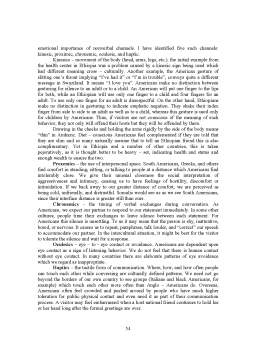Extras din curs
Tema nr.1
TOLEDO: A PROBLEM OF MENUS
Unităţi de învăţare :
• Lectura textului şi selectarea problemelor de vocabular aferente acestuia;
• Verificarea comprehensiunii textului citi prin întrebări;
• Introducerea cunoştinţelor de gramatică aferente texului;
• Fixarea şi consolidarea cunoştinţelor prin exerciţii de tipul reading comprehension, find synonyms, fill in the blanks/rephrase;
• Conversaţie şi dezbatere pe tematica propusă de textul citit.
Obiectivele temei:
• înţelegerea unui text scris, asimilarea elementelor de vocabular aferente acestuia şi fixarea lor prin exerciţii de sinonimie/parafrază;
• înţelegerea conceptului de Conditional Clause (Type III) şi Past Subjunctive şi asimilarea structurilor gramaticale care îl exprimă;
• formarea deprinderilor de utilizare a structurilor gramaticale şi lexicale asimilate într – un context dat, prin exerciţii specifice;
• dezvoltarea capacităţii de utilizare a structurilor gramaticale şi lexicale în producerea unor enunţuri coerente, prin conversaţie şi dezbatere.
Timpul alocat temei : 1 oră
Bibliografie recomandată :
1. Baudoin, E. Margaret, Reader’s Choice, The University of Michigan Press,1988;
2. Dumbravă, Gabriela, An Integrated Skills Course for First Year Students, Editura Universitas, 2001;
3. Fassman, Paula, Suzanne Seymour Tavares, Gallery, Oxford University Press, 1998;
4. Gălăţeanu, Georgiana, Sinteze de gramatică engleză, EDP, Bucureşti, 1982;
5. Hulban, Horia, et al, Competenţă şi performanţă: Exerciţii şi teste de limba engleză, Editura Ştiinţifică şi Enciclopedică, Bucureşti,1993;
6. Matthews, Alan, Themes, Collins ELT, 1988;
7. Proca, Rada, Gramatica practică a limbii engleze, Polirom,1999;
8. Soars, John & Liz, Headway, Oxford University Press, 1990;
9. Vince, Michael, First Certificate Language Practice, Macmillan Heinemann, 2004.
Toledo: A Problem Of Menus
by James Michener
The Spanish government, aware that the golden rewards of tourism could evaporate as quickly as they appeared, has taken sensible steps to protect the tourist. Restaurants are required to offer, in addition to their a la carte menus, a special tourist menu from which one can get a good meal and a bottle of wine at a fixed price. By ordering from this menu one can eat really well in Spain and at about half the price one would expect to pay in either France or Italy.
But. I sat down in a restaurant in Toledo, looked at the menu and said, “I’ll take fish soup, Spanish omelette and flan.”
“And what wine?”
“Whatever comes with the meal.”
“Nothing comes with the meal.”
“But it says right here…”
“You have to order that. Then it’s extra.”
“But the menu says…”
“You are pointing at the tourist menu.”
“That’s what I ordered.”
“Oh, no! You didn’t mention the tourist menu.”
“I’m mentioning it now.”
“You can’t mention it now. You’ve got to mention it when you sit down.”
“But you haven’t even given the order to the kitchen.”
“True. But I’ve written it in my book. And it’s the writing that counts.”
“You mean that if I’d said ‘tourist menu’ at the start, my meal would have cost me a dollar and sixty cents?”
“Clearly.”
“But since I delayed three minutes the same meal is going to cost me two – sixty?”
“Plus sixty cents for the wine.”
I tried to point out how ridiculous such a situation was, but the waiter was adamant, and soon the manager came up, looked at his waiter’s book and shrugged his shoulders. “If you wanted the tourist menu you should have said so,” he grumbled.
“I’m saying so now.”
“Too late.”
I rose and left the restaurant, with the waiter abusing me and the manager claiming loudly that I owed him for having soiled a napkin, which I admit I had unfolded.
I escaped but projected myself into an even worse mess, for I chose what seemed to be the best restaurant in Toledo, where I announced quickly and in a clear voice that I wanted the tourist menu.
“What a pity! With the tourist menu you can’t have partridge.”
“I don’t believe I’d care for partridge.” I had had it on a previous visit and was not too taken with it. “Just the tourist menu.”
“But on the tourist menu you get only three dishes.”
“That’s exactly what I want.”
“But on that menu you don’t get special wine, and I know you Americans prefer a special wine.”
“I’ll drink whatever you Spaniards drink.”
“We drink the special wine.”
I insisted that I be served from the tourist menu, and grudgingly the waiter handed me a menu which offered an enticing choice of five soups, eleven egg or fish dishes, seven meat courses and six promising desserts, but of the twenty – nine dishes thus available, twenty – six carried a surcharge if ordered on the tourist menu. Technically, tourists could order a dinner that would cost the price advertised by the government, but if they did so, they would have two soups, one cheap fish and no dessert. Madrid had laid down the law, but Toledo was interpreting it.
As a traveler I work on the principle which I commend to others: no one should ever protest two abuses in a row. Few people can be right twice running, and never three times straight, so I ordered three dishes, each of which carried a surcharge: soup, roasted chicken, flan. The soup was delicious and the ordinary wine palatable and I sat back to enjoy the meal which had started off so badly.
Unfortunately, I had chosen a table that put me next to a good – looking, ruddy – faced Englishman whose tweed suit gave the impression that he must at home have been a hunting man. As he finished his soup he said to his wife, “First class, absolutely first class.” He had, as I suspected he might, ordered the partridge, but when the waiter deposited the steaming casserole before him, the Englishman looked at it suspiciously, waited till the waiter had gone, then asked his wife quietly, “Do you smell something?”
Preview document
Conținut arhivă zip
- Engleza.doc
























































































